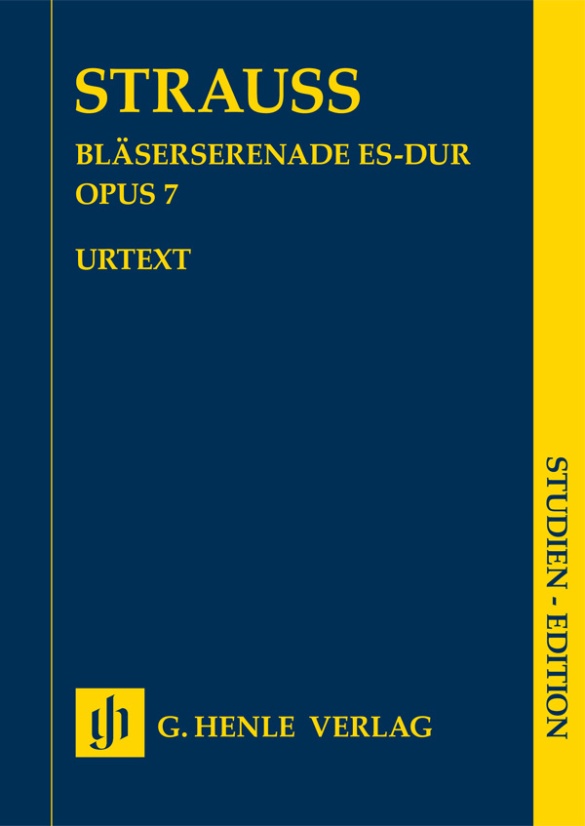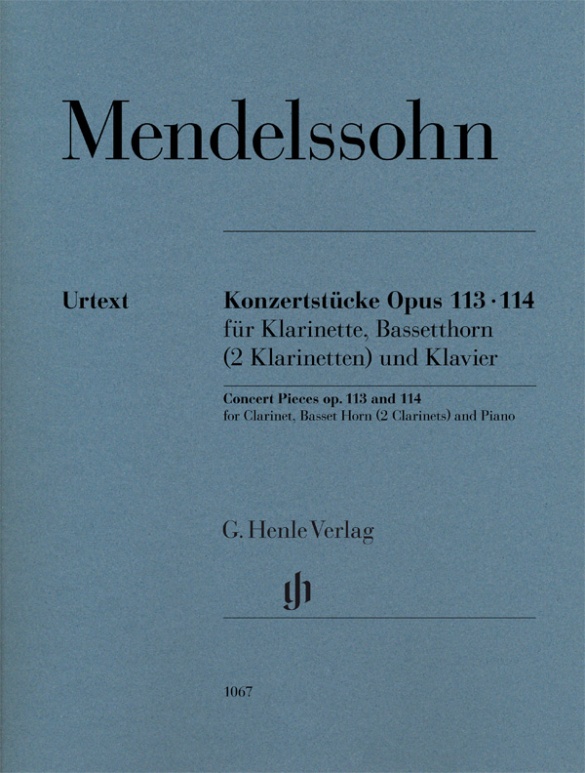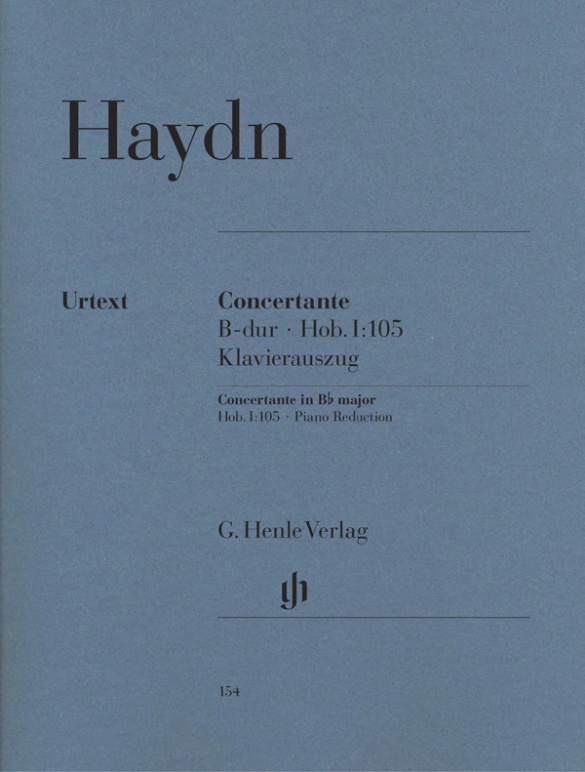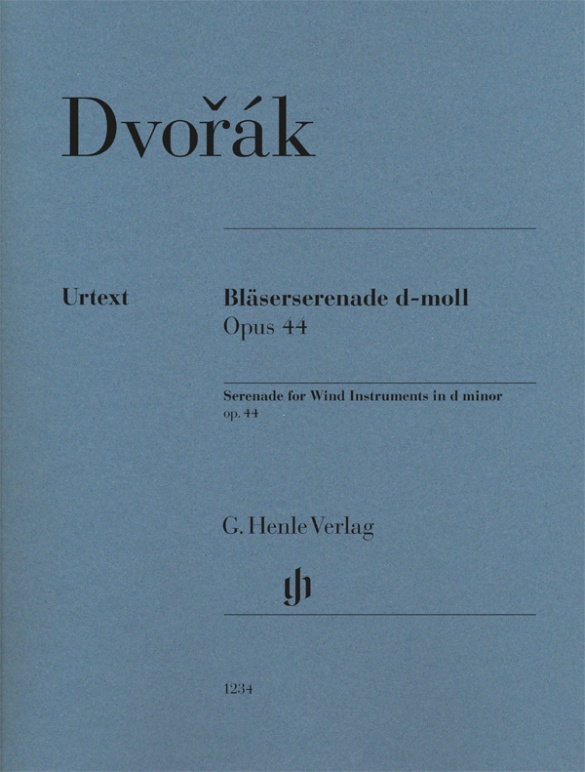

Antonín Dvorák
Wind Serenade d minor op. 44
When Dvořák wrote his Serenade for 10 winds and 2 lower strings in January 1878, the heyday of the great wind serenades and “Harmoniemusik” wind ensembles was already long gone. He was probably inspired by hearing Mozart’s Gran Partita shortly beforehand in Vienna. The home key of d minor here is striking, as is the often serious, even tragic atmosphere that repeatedly darkens the otherwise cheerful mood that is typical of the serenade genre. Perhaps this was a reaction to the death of two of his children just a few months earlier. Despite the work’s dramatic character – or perhaps because of it – Dvořák’s Serenade was taken up in many European cities soon after its first performance in Prague, and fêted as a significant contribution to the chamber music repertoire for wind instruments. The autograph sources in Prague have been consulted for this Urtext edition. The parts are printed with player-friendly page divisions, perfect page-turning opportunities, and practical alternative parts in F for the three horns.
Read more about this edition in the Henle Blog.
Content/Details
About the Composer
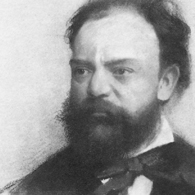
Antonín Dvorák
With Smetana he is the most famous Czech composer of the nineteenth century, contributing to the dissemination and appreciation of Czech music throughout the world. Among his around 200 works, encompassing all standard genres, are nine symphonies, fourteen string quartets, and twelve operas.
| 1841 | Born in Nelahozeves (Mühlhausen) on the Vltava River on September 8, the son of a butcher and innkeeper. |
| 1853 | Attends the training school in Zlonice; there he receives a comprehensive musical education from Josef Toman and the cantor Antonín Liehmann; subsequent education in Česká Kamenice (1856–57). |
| 1857–59 | Studies at the organ school in Prague. Until 1871 he will earn his living as a music teacher, organist, and violist. |
| 1861 | String Quintet No. 1 in A minor, considered his first work. |
| 1862 | Position as solo violist in the orchestra of the Bohemian Provisional Theater (conducted by Smetana, among others) |
| 1873 | Breakthrough with the premiere in Prague of his patriotic hymn “The Heirs of the White Mountain,” Op. 30. Employment at the private Prague School of Music. Several state scholarships. |
| 1874–77 | Organist at St. Adalbert church. |
| from 1876 | “Moravian Duets,” Opp. 20, 29, 32, and 38 (1876–77), “Slavonic Rhapsodies,” Op. 45 and the first series of “Slavonic Dances,” Op. 46 (both from 1878) enjoy great success. His fame abroad grows. |
| 1882 | Premiere of the opera “Dimitrij”, in the tradition of grand opera. |
| 1884 | First invitation to England, after which eight more will follow. |
| 1886 | Premiere of his oratorio “Saint Ludmila,” Op. 71. |
| 1891 | Professor of composition at the Prague Conservatory. |
| 1891–95 | Director of the National Conservatory of Music in New York. |
| 1893 | Premiere in New York of Symphony No. 9, “From the New World,” Op. 95 (American folkloric elements, cyclic techniques). |
| 1901 | Premiere in Prague of his most famous opera, “Rusalka.” |
| 1904 | Premiere in Prague of his last opera, “Armida.” Death in Prague on May 1. |
About the Authors

Dominik Rahmer (Editor)
Dr. Dominik Rahmer, born in 1971 in Mainz, studied musicology, philosophy and maths in Bonn. He did his Magister Artium in 1999 and his doctorate in 2006 with a thesis on the music criticism of Paul Dukas.
From 2001 to 2011 he was employed at Boosey & Hawkes/Bote & Bock in Berlin, where he also worked on the Critical Edition of the Works of Jacques Offenbach (OEK). Since 2011 he has been an editor at G. Henle Publishers in Munich, with a particular focus on French and Russian music and works for wind instruments.
Product Safety Informations (GPSR)

G. Henle Verlag
Here you can find the information about the manufacturer of the product.G. Henle Verlag e.K.
Forstenrieder Allee 122
81476 München
Germany
info@henle.de
www.henle.com
Die Partitur im Format der Henle-Studien-Edition und die Stimmenausgabe – auch in der Henle-Library-App erhältlich – zeichnen sich durch eine sehr gute Lesbarkeit aus und ermöglichen die Aufführung der Bläserserenade im Sinne von Johannes Brahms: „Das müssen gute Kapellen mit Wollust blasen.“
Das Orchester, 2022recommendations
autogenerated_cross_selling
Further editions of this title
Further editions of this title


